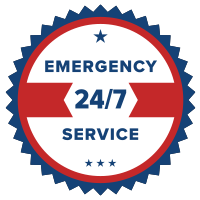7 Ways A Home Renovation Might Affect Your Septic System
Renovating your home can be an exciting venture, whether you’re updating the kitchen, adding a bathroom, or expanding living spaces. However, it’s essential to consider how these renovations can impact your septic system. Your septic system is a crucial part of your home’s infrastructure, responsible for safely treating and disposing of wastewater. Here’s what you need to know about how a home renovation can affect your septic system and how to manage this issue effectively.
Increased Wastewater Volume
One of the primary ways renovations can affect your septic system is by increasing the volume of wastewater that flows into it. Adding bathrooms, installing a new dishwasher, or expanding the size of your home can significantly increase the amount of water and waste your septic system needs to handle. This increased volume can put stress on the system and potentially lead to overloading if it’s not designed to handle the additional load.
Potential Damage During Construction
Construction activities such as digging, trenching, or heavy machinery movement can inadvertently damage underground septic tanks, distribution boxes, or drain fields. Even if your renovation project isn’t directly over the septic system, vibrations from machinery or vehicles can disturb the soil around it, potentially causing shifts or cracks that affect the system’s functionality.
Changes in Water Usage Patterns
Renovations might also change how water is used in your home. For example, if you add a laundry room or a new bathroom, there could be changes in water usage patterns that your septic system wasn’t initially designed to handle. It’s important to consider these changes and ensure your septic system can accommodate them without issues.
Impact on Drainage and Soil Absorption
If your renovation involves adding impervious surfaces such as driveways, patios, or additional structures, it could affect the drainage patterns around your property. Proper drainage is crucial for the optimal functioning of your septic system, as excess water or poor drainage can lead to saturation of the drain field and potential system failure.
Septic System Evaluation and Upgrades
Before embarking on any major renovations, it’s wise to have your septic system evaluated by a qualified professional. They can assess the current capacity of your system, its condition, and recommend any necessary upgrades or modifications to ensure it can handle the anticipated increase in wastewater flow.
Precautions During Construction
During the renovation process, take precautions to protect your septic system. Clearly mark its location for contractors to avoid accidental damage. Minimize heavy equipment or vehicle traffic near the system, and avoid compacting the soil over the drain field or tank area.
Post-Renovation Monitoring
After completing renovations, monitor your septic system closely for any signs of stress or issues. Keep an eye out for slow drains, gurgling noises, foul odors, or wet spots around the drain field, as these could indicate problems that need immediate attention.
Conclusion
Renovating your home can improve comfort, functionality, and property value, but it’s essential to consider the impact on your septic system. By planning ahead, evaluating your system’s capacity, and taking necessary precautions during construction, you can ensure that your septic system continues to operate effectively and efficiently for years to come. Consulting with a septic professional before and after renovations can help you navigate potential challenges and maintain the health of your septic system throughout the renovation process.
Contact Us;
Planning a home remodel or renovation and have questions about how it might affect your septic system? Give us a call! One Way Septic is a family owned and operated septic tank and sewer service located in Acworth, GA. We serve a majority of the state of Georgia from Atlanta northward. You may reach us by phone at 404-775-1164, by email at [email protected], or visit our website and request service.




